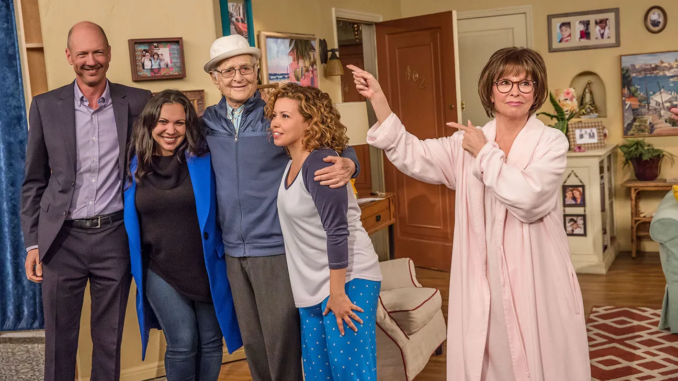
Six episodes of Norman Lear’s television series changed the world
The visionary creator, who has died aged 101, changed cultural attitudes with shows that are as fresh and insightful today as they were 50 years ago.
Television giant Norman Lear, who died on December 5 at the age of 101, left behind arguably the most valuable body of work ever committed to the medium. In popular series like All in the Family, Maude and The Jeffersons, Lear dared to tackle issues then considered unthinkable sitcom fodder—rape, abortion, homosexuality , racist, alcoholic — with genius eyes and ears to capture the moral complexity of their poking fun at the foibles of the American working class. However, these six volumes stand out from the rest for actively involving public opinion – and in doing so elevate Lear’s work from mere entertainment to timeless pop art.
1. All in the Family – Season 8 – “Cousin Liz” – Original air date: October 9, 1977
Lear’s masterpiece, All in the Family, tackled the hottest issues throughout its nine seasons, from rape to racism to the war in Vietnam. But one episode that particularly resonates is “Cousin Liz,” in which Edith overcomes Archie’s impassioned objections and gifts her deceased cousin’s lesbian partner a silver tea set. has deep emotional value. The episode aired while Anita Bryant and her Save Our Children coalition sponsored national ballot initiatives aimed at banning LGBTQ citizens from working in public schools — and the failure of one Those initiatives in California (the “Briggs initiative” was named after state Sen. John Briggs ) are partly credited to “Cousin Liz.” — Seth Abramovich
2. Maude — Part 1 — “Maude’s Dilemma” — Original air date: November 14 – November 15, 1972
CBS had just one objection to the groundbreaking two-way debate – which took place a year before Roe vs. Wade, even though abortion is already legal in New York, where the show is set – brought the abortion debate into America’s living rooms: that both sides be represented. The episode, written by future Golden Girls creator Susan Harris, follows Bea Arthur’s Maude Findlay, an outspoken liberal woman on her fourth marriage, who discovers an unexpected pregnancy at the age of 47.

3. Good Times — Part 1 — “Michael Gets Suspends” — Original air date: March 8, 1974
In the first episode “Michael Gets Suspends,” the youngest and most involved child of the Evans family, Michael (Ralph Carter), is disciplined at school for saying that George Washington owned slaves and was a “dissident.” white racism”. Throughout the series, Michael’s activist behavior will frustrate his pragmatic parents, and in this episode, his father, James (John Amos), calls him a “warrior dwarf.” But what stands out about the 1974 storyline is the timeliness of Michael’s critique of his school lessons.
4. The Jeffersons – Season 6 – “The First Store” – Original air date: April 6, 1980
The episode-long flashback tells the politically charged story of how George (Sherman Hemsley) started his first dry cleaning business. After meeting a patronizing white banker and enduring a series of micro-aggressions (or, to be honest, macro-aggressions), George was close to securing a loan to open a store in Harlem – on the evening of the 4th April 1968.
5. One Day at a Time (Netflix, 2017) — Season 2 — “The Turn” — Original Air Date: January. 26, 2018
Lear’s reboot of his 1975 series — about a single mother raising two daughters on her own — was more overtly political than the original, reimagining the premise with a Latino cast (Justina Machado and Rita Moreno, with Todd Grinnell as Schneider) while tackling hot- button issues like racism and immigration. The first episode of season two had Penelope’s 13-year-old son, Alex (Marcel Ruiz), urging his family not to embarrass him by talking loudly or calling him “Papito.” Turns out that’s because Alex was told to “go back to Mexico” by a bully who heard the young man — born in America — speak Spanish to a friend. Gloria Calderón Kellett, herself from a Cuban American background, created the series with Mike Royce, with a 95-year-old Lear executive producing. — Ethan Vlessing
6. Mary Hartman, Mary Hartman — Season 1 — “130” — Original Air Date: July 2, 1976
Spoofing daytime serials and their endless melodrama, Lear boldly embraced their format, delivering half-hour episodes five times a week over two seasons via independent channels across the country. In his crazy, scathing satire of consumer culture, Mary is a small-town housewife convinced that TV and its bountiful commercials can provide the answers to such existential crises as waxy yellow buildup and the news that her grandfather is the Fernwood Flasher. Louise Lasser brought the perfect sensibility to the role, numb and glazed but pierced by a slow-dawning yearning for something better.